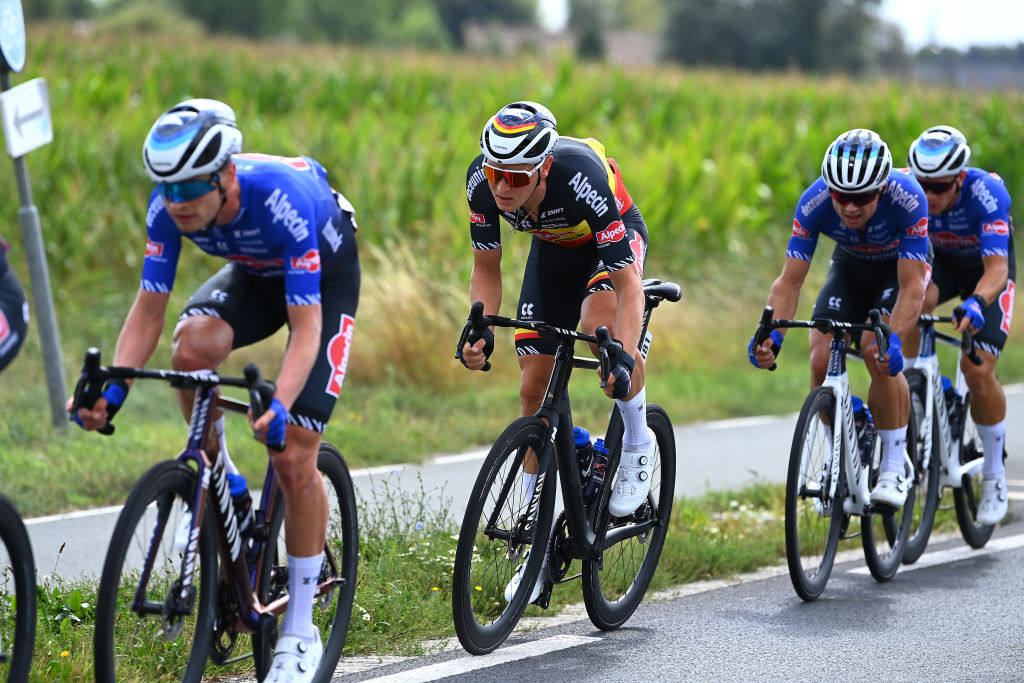They worked to pull back the break, then stopped, worked to pull back the break, then stopped. The Vuelta’s flat stage 2 through Holland had plenty of observers scratching their heads at Alpecin-Deceuninck’s seemingly contradictory tactics for nearly 100 kilometres, but in fact as the team saw it, there was a perfectly logical explanation.
As the squad, headed by leading favourite Tim Merlier, explained later the aim had been to try and forge working alliances with the other teams fielding fastmen to try and keep the early breakaway of five riders under control.
Yet what few sprinters’ teams are present did not seem overly enthusiastic about the idea of forging a working alliance, provoking irritation in the Belgian squad. As Merlier told reporters later, “they have no reason to be afraid,” before warning that “if it continues like this, then tomorrow [Sunday] will be the last sprint stage.”
The move was finally brought back after 100 kilometres of chasing then not chasing by Alpecin-Deceuninck, with around 50 kilometres to go.
“We were looking for help, other sprinters have no reason to be afraid, they also can win, there are other sprinters here,” said Merlier, who finish third on stage 2 behind Sam Bennett (Bora-Hansgrohe) and Mads Pedersen (Trek-Segafredo).
His teammate Xandro Meurisse provided a more detailed explanation to Cyclingnews about the day’s tactics, saying “The problem was we got no help, and they just said ‘we don’t believe that we can beat Tim’.
“Afterwards we decided to close the gap immediately. We had two options, either to let them go for five or six minutes, or if we still had no help, the break is gone.
“Then we decided to close it, but afterwards we were still alone [chasing] but towards the final you always get some support from the GC teams. So finally it worked out well, just it’s sad that Tim couldn’t get the win.
“But as the team we did everything we could. We showed though, from the first day, that we’re present in the race and tomorrow [Sunday] there is another chance.”
Meurisse agreed that there are relatively few sprinters’ teams in the race, but argued if they did not work as well, then it risked being self-destructive.
“It’s a little bit sad that teams bring a sprinter here, but then refuse to ride [collaborate] because they think they can’t beat Tim. Then my idea is, you don’t have to bring a sprinter, if you don’t trust him, keep him at home or send him to other races.
Click Here to Read the Full Original Article at CyclingNews RSS Feed…

